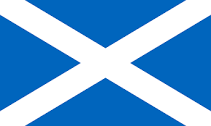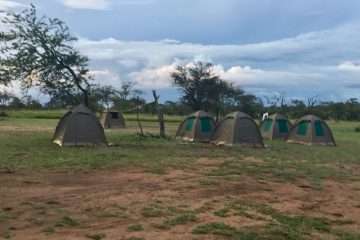
Kenyan Flag
It is a long drive back to our campsite at Mto wa Mbu and the mist and rain means there is little to see. It is time for some distraction and entertainment. So Martin and Safari decide to expand our knowledge of Kiswahili.
We already know :
Jambo (hello)
Mambo (Hi)
Asante (Thank you )
Asante sana (Thank you very much.)
Pole (sorry)
Pole pole (slowly)
Swali? (questions?)

Tanzanian flag
Martin decides on the perfect phrase for us to learn. He assures us that once we have it off by heart – everyone in east Africa will be seriously impressesed. How can we resist? Natalie is first to learn it – she has a very good ear for languages and being Swiss can already speak about half a dozen!
Poa kichizi Kama ndizi ndani ya friji.
This means “I am crazy good like a cool banana in a fridge.” An essential phrase for any traveller in Africa, I feel. I practice and practice but it is hard to say off by heart. There is much laughter from the front seat about my terrible accent, missing letters and random words.
I feel it’s time to redress the balance. Kiswahili may be tricky but Doric (the dialect of the North East of Scotland) is absolutely impossible for non-native speakers. This is because it is much more than just an accent. It is an entirely different language although still considered to sit under the umbrella of English.
We start nice and easy:
Fit like? (How are you?)
Chavvin awa (Fine, thank you)
Ye’ll hae a fly? (Would you like a cup of tea?)
No-one in the jeep can believe that this is English.
Then I take it up a level:
The broon coo’s broken oot an eatin a’ the neeps (The brown cow has broken out of the field and eaten all the turnips.)
Fit ski fits oan fit fit? (Which ski fits on which foot?)
And then it’s time for the best one of all. This was overheard in a bakery shop when someone ordered a savoury pastry,
“An a’ll hae an inging inging a.” (I would like an onion one as well.)
The journey passes in no time, as Doric and Kiswahilli pass back and forth, reverberating from front seats to back seats, in the midst of much laughter. By the end, we have all learned something about each others’ language. So perhaps your challenge is to learn a few words of each!



0 Comments